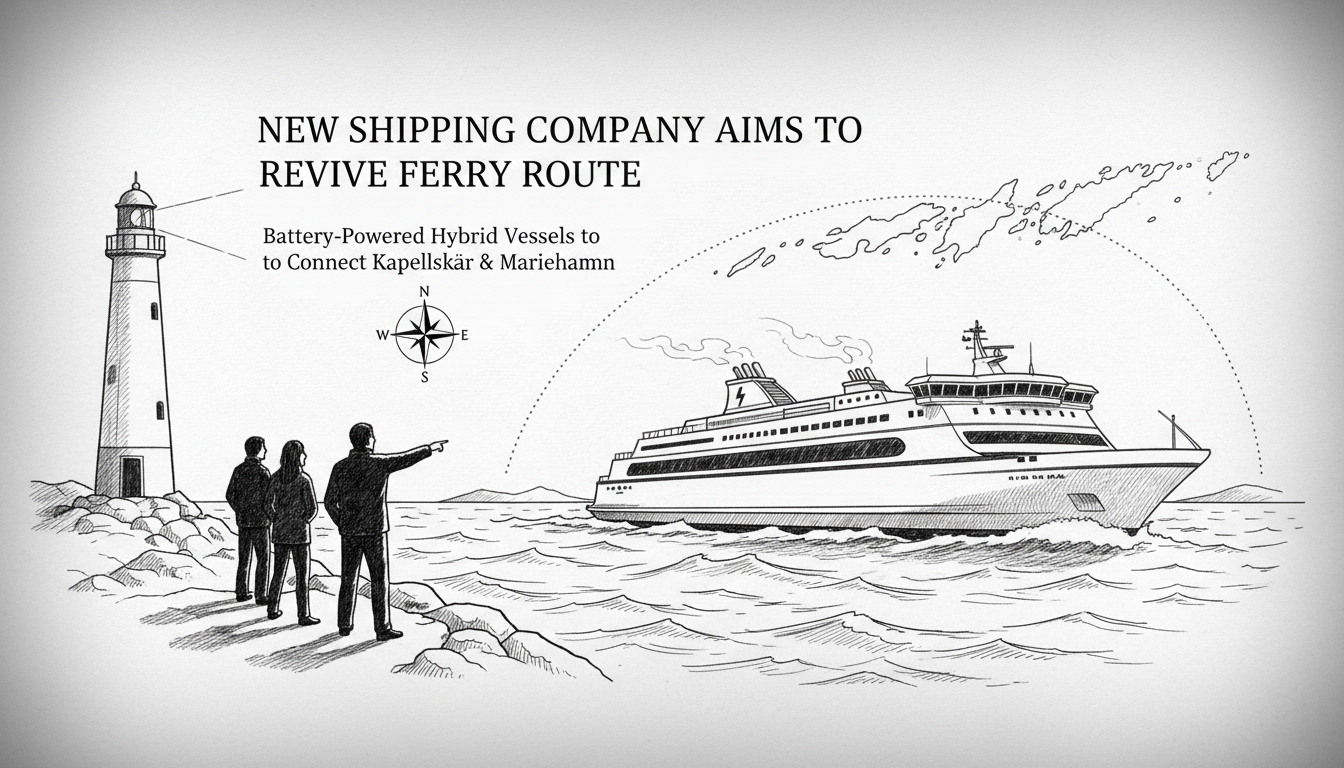A new Swedish shipping initiative plans to restore direct ferry service between Kapellskär and Mariehamn. The company has completed vessel designs and will issue tender requests to shipyards once financing plans are finalized. Project organizers target reopening the route within approximately three years.
The Kapellskär-Mariehamn connection previously served about 750,000 passengers annually. Many Swedish travelers used the route for day trips to Åland's capital. The direct link provided crucial accessibility between mainland Sweden and the autonomous Finnish archipelago.
Currently, Finnlines vessels traveling between Kapellskär and Naantali make a stop at Långnäs. This port lies about thirty minutes by car from Mariehamn. Åland residents maintain that the direct Mariehamn connection remains important despite this alternative.
Shipping officials first explored purchasing a secondhand vessel for the route. They quickly determined that a battery-powered hybrid ferry represented the best solution. The short crossing distance makes electric charging particularly feasible.
This revival effort reflects growing regional emphasis on sustainable maritime transport. The Nordic countries increasingly prioritize electrification of coastal shipping routes. Several similar projects have emerged across Scandinavia in recent years.
The restored connection would significantly boost tourism and economic exchange. Mariehamn's shops, restaurants, and attractions benefited substantially from Swedish day-trippers. Local businesses have expressed strong support for the route's return.
Ferry transport forms the lifeblood of Åland's economy. The archipelago's unique autonomous status within Finland depends on reliable connections to both Sweden and mainland Finland. This geographical reality makes maritime links fundamentally important.
Project organizers face the challenge of securing adequate funding and navigating regulatory requirements. The three-year timeline appears ambitious but achievable given current momentum. The shift toward electric ferries aligns perfectly with Nordic environmental priorities.
What practical obstacles might delay this project? Infrastructure upgrades at both ports may be necessary to support new hybrid vessels. Environmental approvals and shipping regulations could also affect the timeline. The company's ability to secure competitive shipyard pricing will be crucial.
The potential revival demonstrates how regional transport networks evolve to meet changing demands. It also shows the enduring economic interdependence between Swedish coastal communities and Åland. This connection represents more than just a ferry route—it's a vital cultural and commercial bridge.

